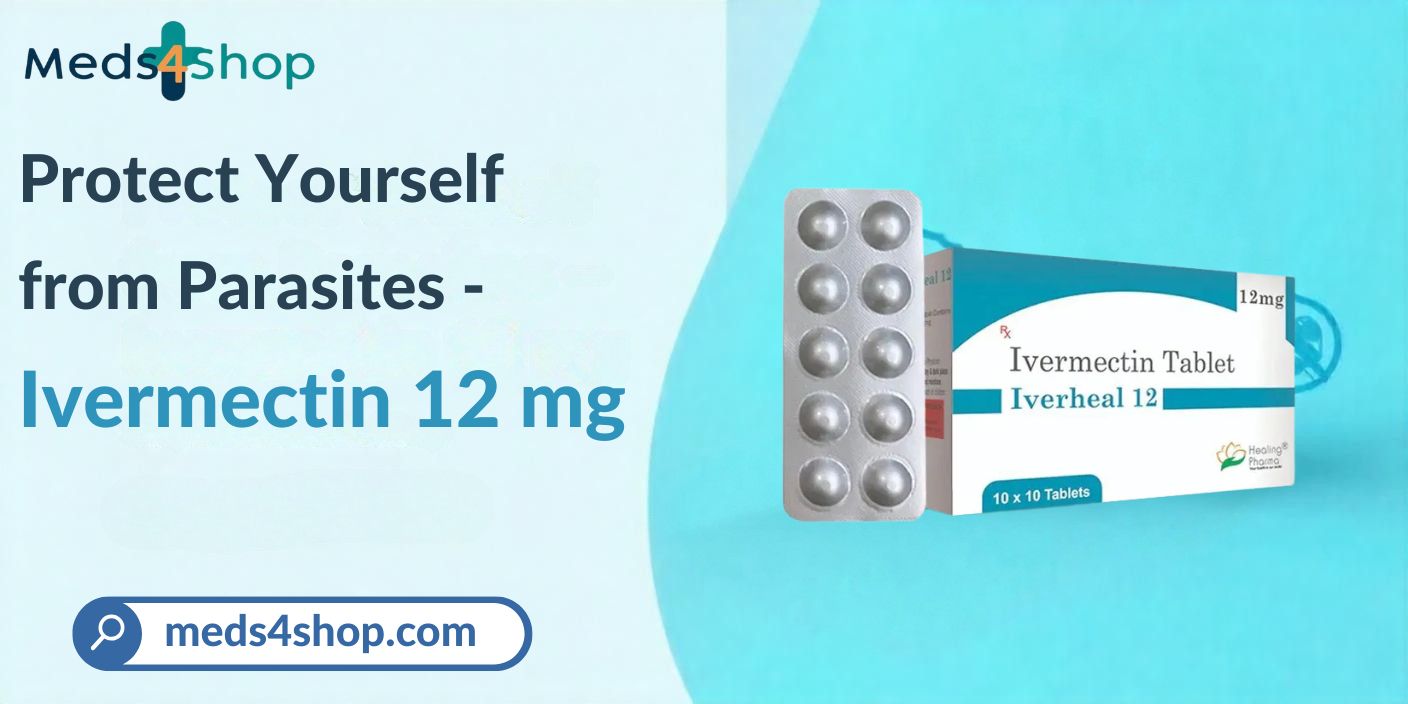Ivermectin 12 mg is a prescription medication primarily used to treat various parasitic infections. Originally developed in the late 1970s, ivermectin has played a crucial role in global health initiatives, particularly in regions afflicted by tropical diseases. Over the years, its use has expanded and, in some instances, sparked controversy, especially during the COVID-19 pandemic. This article explores what Ivermectin 12 mg is, how it works, its standard medical uses, and the concerns related to its off-label applications.
What Is Ivermectin?
Ivermectin is an antiparasitic agent derived from avermectins, compounds isolated from the bacterium Streptomyces avermitilis. It works by interfering with the nervous system of parasites, leading to paralysis and death. In humans and animals, ivermectin is widely regarded as safe when used as prescribed.
The 12 mg dosage refers to the amount of ivermectin in a single oral tablet. It is one of several dosage forms available, with 3 mg, 6 mg, and 12 mg tablets being the most common. The choice of dose depends on the condition being treated, the patient’s weight, and the severity of the infection.
Approved Uses of Ivermectin 12 mg
Ivermectin is FDA-approved and globally recognized for the treatment of several parasitic diseases, including:
-
Strongyloidiasis – a roundworm infection that affects the intestines.
-
Onchocerciasis (River Blindness) – a condition caused by Onchocerca volvulus, spread by blackflies, leading to severe itching, skin conditions, and potential blindness.
-
Scabies and lice – ivermectin is sometimes used orally when topical treatments fail.
-
Other parasitic worm infections – such as ascariasis and trichuriasis.
The 12 mg dose is often given in a single administration or in repeated doses depending on the diagnosis and the parasite’s life cycle.
How Is Ivermectin 12 mg Taken?
The standard approach for taking ivermectin 12 mg involves a single oral dose taken on an empty stomach with water. The exact dosage is usually calculated based on the patient’s body weight (e.g., 150–200 mcg per kilogram). For some conditions, repeated doses may be necessary.
In cases like scabies or strongyloidiasis, treatment may include two doses taken one week apart to ensure all life stages of the parasite are eradicated.
Safety and Side Effects
Ivermectin is generally well tolerated. However, like all medications, it can cause side effects. Common side effects include:
-
Nausea
-
Dizziness
-
Diarrhea
-
Skin rash
-
Mild itching
More serious reactions are rare but may include:
-
Allergic responses (especially in people with a heavy parasite load)
-
Liver toxicity (in extremely high doses or with prolonged use)
-
Eye or neurological complications (rare)
People with liver conditions or those taking medications that interact with ivermectin (like blood thinners or sedatives) should use it cautiously and only under medical supervision.
Ivermectin and COVID-19: What Happened?
During the COVID-19 pandemic, ivermectin gained global attention due to reports suggesting it might inhibit the SARS-CoV-2 virus in laboratory settings. Some early studies and anecdotal reports claimed potential benefits, leading to widespread off-label use and even panic buying.
However, major health organizations, including the World Health Organization (WHO), U.S. FDA, and European Medicines Agency (EMA), reviewed the evidence and concluded that the data did not support ivermectin’s use for COVID-19 outside of clinical trials. Larger, more rigorous studies showed no significant benefit in preventing or treating COVID-19.
In addition to its medical importance, ivermectin has had a profound impact on global health policy. It is a cornerstone of mass drug administration programs led by organizations like the WHO and the Carter Center to eliminate parasitic diseases in low-income countries. Millions of doses have been distributed safely, showcasing ivermectin’s value in public health initiatives. The widespread availability of ivermectin 12 mg in tablet form makes it accessible for use in both individual treatment and community-wide efforts. As research continues, new potential uses may emerge—but any such developments must be backed by rigorous scientific validation to ensure safety and efficacy.
Despite this, misinformation spread rapidly on social media, and ivermectin became a subject of political and medical debate. Some advocates insisted on its efficacy, while many health professionals warned about the dangers of self-medicating, especially with veterinary formulations intended for animals.
Responsible Use of Ivermectin 12 mg
It’s important to remember that ivermectin, while effective for its approved uses, is not a cure-all. Taking the drug without a confirmed diagnosis or proper guidance can lead to adverse effects or drug resistance.
Key recommendations include:
-
Always consult a healthcare provider before starting ivermectin.
-
Never use veterinary ivermectin intended for animals.
-
Follow dosage instructions strictly and report any side effects.
Conclusion
Buy Ivermectin 12 mg at Meds4shop remains a powerful and effective treatment for a range of parasitic infections. Its global impact on diseases like onchocerciasis and strongyloidiasis has saved millions of lives and improved quality of life in endemic regions. However, the drug is not without risks and should be used responsibly.
The recent controversies around ivermectin’s use in viral infections underscore the importance of evidence-based medicine. While science evolves and new uses for old drugs are sometimes discovered, public health decisions must be grounded in robust data, not anecdote or hype. For those who genuinely need ivermectin 12 mg, it remains an essential, life-saving medication—when used appropriately.
